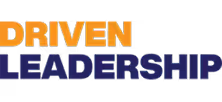Conflict Resolution Training in Los Angeles, CA


Leadership Training Conflict Resolution Training in Los Angeles, CA
Effective conflict resolution is a core leadership skill in Los Angeles workplaces where diverse teams, high-paced industries, and distributed work patterns meet complex stakeholder demands. Our Leadership Training Conflict Resolution Training in Los Angeles, CA focuses on practical frameworks for managing disputes, strengthening communication, and equipping managers to resolve conflicts before they escalate. The goal: measurable improvements in team cohesion, faster issue resolution, and fewer formal escalations.
Why conflict resolution training matters for Los Angeles organizations
Los Angeles teams face unique stressors: compressed project timelines in entertainment and tech, long commutes that create time pressure, multicultural workforces that bring varied communication styles, and widespread remote or hybrid arrangements. These conditions increase the likelihood of misunderstandings and recurring interpersonal friction. Strong conflict resolution skills help leaders create a resilient culture where differences become creative fuel rather than productivity drains.
Common conflict types we address
Training content targets the most frequent and damaging conflicts that leaders see in LA workplaces:
- Role and responsibility ambiguity causing turf disputes
- Communication breakdowns across distributed or cross-functional teams
- Cultural and style differences creating misread intentions
- Performance-related friction between high performers and teammates
- Resource competition and priority conflicts in fast-moving projects
- Client or stakeholder escalations that require immediate de-escalation
What the program covers (core modules)
Each module combines short teaching segments, experiential practice, and implementation tools managers use the same day. Core modules include:
- Conflict Frameworks: Structured approaches such as interests vs positions, conflict spirals, and escalation ladders that make disputes diagnosable and actionable.
- Active Communication Skills: Listening techniques, reflective statements, question design, and nonverbal awareness to reduce misinterpretation.
- Mediation Practices: Facilitation methods for 1:1 and group mediations, including agenda setting, neutral framing, and agreement documentation.
- Role-Play Scenarios: Realistic simulations tailored to LA contexts (agency-client friction, cross-department deadline conflicts, remote onboarding tensions) with guided feedback.
- Manager Implementation Guides: Checklists, conversation scripts, meeting templates, and follow-up processes to embed skills in day-to-day leadership.
- Sustaining Change: Team norms creation, post-conflict learning routines, and metrics to track reductions in escalations and improvements in team climate.
How training is delivered
Training is designed for immediate applicability and long-term adoption:
- Short modules that fit into leadership meetings or half-day workshops for minimal business disruption
- Experiential labs where leaders practice mediation and communication under realistic conditions
- Customized scenarios based on organization-specific challenges in Los Angeles industries
- Follow-up toolkits with conversation templates, meeting agendas, and manager journals to ensure transfer of learning
- Options for in-person sessions, hybrid workshops, or fully virtual cohorts to match LA workplace realities
Simple framework leaders use to diagnose and act
We teach a three-step diagnostic process leaders can use in real time:
- Assess - Identify whether the issue is interpersonal, structural, or resource-based. Ask clarifying questions and map interests.
- Contain - Lower emotional intensity through private check-ins, neutral language, and temporary boundaries to prevent escalation.
- Resolve and Reinforce - Facilitate interest-based negotiation, document agreements, and set follow-up checkpoints to ensure accountability.
This repeatable sequence helps leaders move from reactive to intentional conflict management.
Role-play and practice — why it works
Role-play scenarios convert knowledge into skill. Participants practice:
- Opening a mediation conversation that reduces defensiveness
- Coaching conversations for performance-related conflict
- Group interventions that restore psychological safety after a team blow-upEach exercise includes structured feedback and a coached replay so leaders leave confident to apply techniques in real workplace situations.
Implementation guide for managers
Managers receive practical tools to make conflict resolution part of daily leadership:
- Conversation scripts for immediate de-escalation and inquiry
- Meeting templates to surface and resolve issues before they grow
- A simple escalation protocol to identify when HR or formal mediation is needed
- A 30-60-90 day follow-up plan to measure resolution effectiveness and prevent recurrence
These resources reduce hesitation and improve consistency across leaders.
Expected outcomes and measurable benefits
Organizations that adopt disciplined conflict resolution practices in Los Angeles typically see:
- Faster resolution times and fewer formal complaints or HR referrals
- Higher team cohesion and psychological safety scores
- Improved productivity as time spent on interpersonal friction drops
- Reduced turnover in high-cost roles where interpersonal dynamics are a leading cause of departure
- Clearer expectations and ownership across cross-functional initiatives
We emphasize measurable impact: reduction in escalations, improved pulse survey results, and observable behavioral changes in leader-team interactions.
Tips to sustain improvements in LA workplaces
- Create team norms that explicitly define how disagreements will be handled.
- Schedule regular check-ins to surface small issues before they escalate.
- Model conflict skills at the leadership level; team members mirror leader behavior.
- Use short, documented agreements after mediations so expectations are clear.
- Track simple KPIs: time to resolution, number of escalations, and team climate indicators.
By embedding these habits, Los Angeles teams can reduce costly disruptions and turn conflict into productive change.
ConclusionLeadership Training Conflict Resolution Training in Los Angeles, CA equips managers with practical frameworks, communication skills, mediation practices, and role-play experience tailored to the city’s diverse and fast-moving work environments. The program delivers tools and processes managers can use immediately, plus implementation guidance to make conflict resolution a sustainable organizational capability that raises team performance and reduces escalations.

